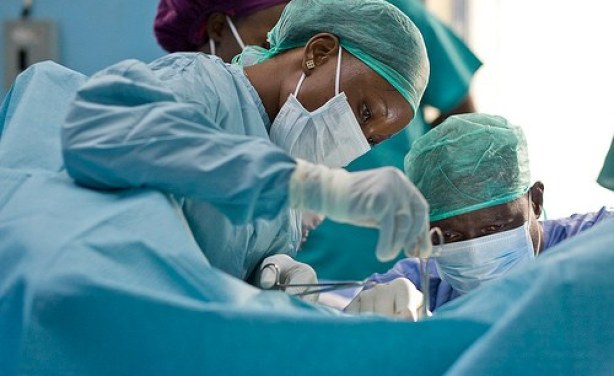Nigeria imported 20.30 billion litres of petrol in 2023, data from the National Bureau of Statistics (NBS) has shown.
The NBS said this shows a decrease of 13.77 per cent from 23.54 billion litres imported in 2022.
The bureau said this in its “Petroleum Products Distribution Statistics full year 2023” released on Wednesday.
“In terms of imported products, 20.30 billion litres of Premium Motor Spirit (PMS) were imported in 2023 relative to 23.54 billion litres in 2022, showing a decrease of 13.77 per cent,” the NBS said.
It explained that in 2023, petrol truck out stood at 20.22 billion litres, indicating a 16.96 per cent decrease relative to 24.35 billion litres recorded in 2022.
The report said about 69.71 million litres of Household Kerosene (HHK) were locally produced in 2023 compared to 44.68 million litres in 2022, indicating a growth rate of 56.02 per cent over the period.
For Automotive Gas Oil (diesel), it said 109.39 million litres were locally produced in 2023, higher, compared to 102.47 million litres reported in 2022. This represents a 6.76 per cent growth rate.
Nigerians need credible journalism. Help us report it.
Support journalism driven by facts, created by Nigerians for Nigerians. Our thorough, researched reporting relies on the support of readers like you.
Help us maintain free and accessible news for all with a small donation.
Every contribution guarantees that we can keep delivering important stories —no paywalls, just quality journalism.
Also, it said, 4.94 billion litres of diesel were imported in 2023, indicating an increase of 23.66 per cent compared to 4.00 billion litres in the previous year.
In July 2023, the Nigerian Midstream and Downstream Petroleum Regulatory Authority (NMDPRA) said the country’s daily consumption of petrol drastically reduced following the removal of subsidy by the federal government.
Subsidy removal
President Bola Tinubu was sworn in on 29 May 2023 in Abuja, taking over power from former President Muhammadu Buhari.
On taking office, Mr Tinubu announced removal of costly petrol subsidies that had been a drain on the national treasury for years, costing the nation trillions of naira annually.
Following the announcement, the Nigerian National Petroleum Company Limited (NNPC Ltd) directed its outlets nationwide to sell fuel between N480 and N570 per litre, an almost 200 per cent increase from the initial price below N200.
The hike immediately triggered an increase in transportation fares and prices of goods and services by various percentages.
In September, Petrol pump price rose to N897 per litre at various outlets of the NNPC Ltd in Abuja. Currently, petrol pump prices range from N900 – N1200 depending on the state.
In recent months, fuel scarcity hit major cities across Nigeria, with attendant effects on businesses and households.
The NNPC in September, said its ability to sustain regular supply of petrol across Nigeria was under threat. The oil company said it is under financial duress due to Premium Motor Spirit (PMS) supply costs, impacting supply sustainability.
Support PREMIUM TIMES' journalism of integrity and credibility
At Premium Times, we firmly believe in the importance of high-quality journalism. Recognizing that not everyone can afford costly news subscriptions, we are dedicated to delivering meticulously researched, fact-checked news that remains freely accessible to all.
Whether you turn to Premium Times for daily updates, in-depth investigations into pressing national issues, or entertaining trending stories, we value your readership.
It’s essential to acknowledge that news production incurs expenses, and we take pride in never placing our stories behind a prohibitive paywall.
Would you consider supporting us with a modest contribution on a monthly basis to help maintain our commitment to free, accessible news?
TEXT AD: Call Willie - +2348098788999


















 English (US) ·
English (US) ·